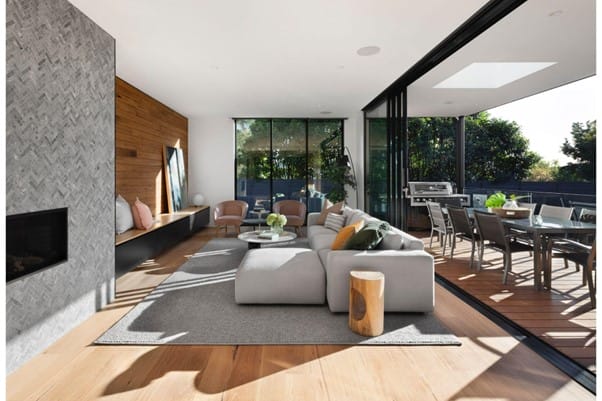Building an extension is an exciting time for any homeowner. Whether you are thinking of a Victorian terrace side extension, a new garage, or a loft conversion, you are probably buzzing with both ideas and questions. And the first question a lot of our clients ask is: Do I need to hire an architect for my extension?
To hire an architect, or not to hire a architect
It is, indeed, a matter of great debate. As with most grand problems in life, you might discover it is the question, and not the answer, that needs to be considered.
If what you seek is a solid set of drawings, a structure that is built to last, and a design that indulges all the favourite tastes in your palette, read on. This sounds like an architect’s scope of works, and that’s because it is. What you might not have considered, however, is that hiring an architect is just one of many ways to attain just that.
Pros and cons of hiring an architect
First of all, let’s lay the foundations: we have already established that you don’t need an architect. But there are many reasons why you might want one: they bring value through design, they can help manage your contract when the works start on site, and they can offer a steady reference to guide you through the process.
The drawback is that architects can be expensive compared to the value of an extension’s scope of works, and you may be better off investing in consultants that offer a higher return for you.
What you do need for your extension
Whether or not you decide to hire an architect, there are certain hurdles you will have to deal with before you can lounge in that sunlit new reading room you’re planning.
The bare truth is that an architect is not always the best consultant to have by your side if you want to ensure a smooth journey. Why? Because in order to successfully solve critical project milestones such as planning, structural engineering, or building control, you will have to hire other external consultants anyway.
So, what are these baptisms of fire your project needs to undergo before you can enjoy your dream home? We have put together a quick checklist to ease your navigation:
- Planning
Who knew a single word could cause such dread? Planning gets a bad reputation, but it is not half as scary as it sounds once you know exactly what you’re dealing with.
Planning is not always a requirement but, whether or not it is, the first step is to be sure. If planning isn’t needed, you still want to know what the constraints on your permitted development are. Is there a height limit? How does it affect your neighbours? Are you limited on the materials you can use?
If it turns out planning is required, having the right experts on your team can mean the difference between an endless source of headaches and a project that is set up for success from the get-go.
- Drawings
You will need the right drawings for planning and for construction. Luckily, there is a range of consultants who can provide these, from planning consultants, to interior designers, to the contractors themselves. And, of course, the architects; just double-check they can draft drawings for all stages of your project.
- Hiring a contractor
This can be a haunting prospect and, again, having the right consultants by your side is key to ensure you go into contract with someone efficient and trustworthy.
If you have a trusted contractor, you might go for a design-and-build route and that’s half your job done.
If not, as is often the case, there is a wide range of options, and consultants such as ourselves or other experts in the building industry can recommend trusted contractors who have your best interest at heart. Architects, too, tend to have a pool of available contractors, although there is a higher risk of conflicts of interest arising from their side-by-side involvement in the project.
- Building control
Ideally, Building Control matters are taken into account from the beginning, so you start construction with confidence that your plans, and the final outcome, will be legally approved without any hiccups.
Consultant such as Studio Charrette will always ensure your plans are Building Control friendly from the very early stages.
First steps towards making your dream extension a reality
Against what you might have initially had in mind when you came here, hiring an architect doesn’t have to be the first step.
If you haven’t made your choice yet about whether you need one, our advice is to make that decision while holding all the cards. How? By carrying out a professional feasibility study that tells you:
- Whether you need planning
- What your chances of success are should you need planning approval
- What your specific project requires
- What the next steps look like
At Studio Charrette, we provide affordable Planning Appraisals that can get you all of this information in one go. Once you have all the answers you need to kick-start your project, our specialist team of architects, structural engineers, and designers can help you get from feasibility, through planning, and all the way to practical completion.
And, yes, transform that unused space in the corner into the cosy reading room you always knew it could become.
In a nutshell
Whether an architect is right for your project, or whether you can get better value out of other construction consultants, is largely up to you.
An easy rule of thumb is that, if the extent of the works is simple (a side extension, a rear extension, or a garage) you can do without. If, on the other hand, your extension involves structural complexities (as a loft conversion or a wrap-around extension often do), hiring an architect can make the extra cost worth your money.
Our recommendation? Start by getting to know your project better, learn what it needs before diving head-first on deciding whom it needs.
You can book a Planning Appraisal with us today, and let our consultants advise on your project requirements. Learn your planning prospects while understanding the foreseeable timeline from concept to completion and the best team structure to secure the results you want with the best value for money.


